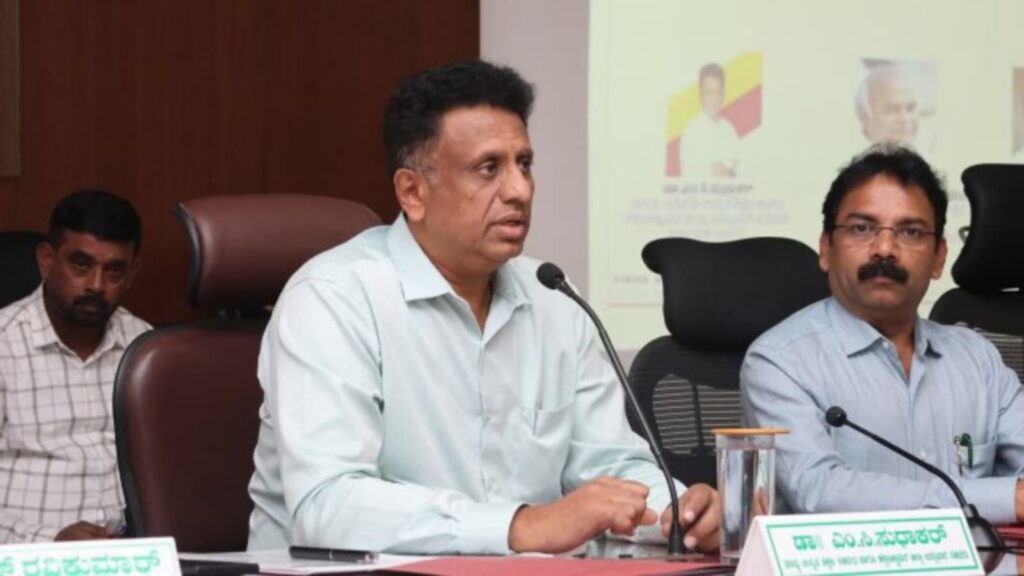The Karnataka government has officially opposed the University Grants Commission’s (UGC) recently released draft Learning Outcomes-based Curriculum Framework (LOCF) for undergraduate programmes.
Higher Education Minister M C Sudhakar Thursday announced that the state will not accept the proposed changes, describing them as an overreach by the UGC that undermines the federal structure of India’s education system. Sudhakar also stated that a committee under the Karnataka State Higher Education Council (KHEC) will be formed to examine the draft curriculum. This comes after the Kerala government made the same move by forming an expert committee to review the curriculum.
The draft LOCF, aligned with the National Education Policy (NEP) 2020, outlines curriculum revisions for nine subjects: Anthropology, Chemistry, Commerce, Economics, Geology, Home Science, Mathematics, Physical Education, and Political Science. Critics have labelled it “regressive, unscientific, and ideologically biased,” accusing it of promoting a right-wing agenda through selective historical and cultural inclusions.
In subjects like Commerce and Economics, students are encouraged to analyse ‘Ram Rajya’ (an ideal governance model from Hindu mythology) in the context of corporate social responsibility (CSR) and environmental, social, and governance (ESG) frameworks. Ancient texts such as the Upanishads, Mahabharata, and Kautilya’s Arthashastra are recommended as references for sustainable development and ethical business practices.
The draft LOCF suggests biographies of V D Savarkar and Deendayal Upadhyaya (RSS ideologue and founder of Bharatiya Jana Sangh) as electives on India’s freedom movement. Savarkar’s book The Indian War of Independence is listed as recommended reading, which opponents argue distorts the diverse narratives of the Independence struggle.
In Mathematics, the draft recommends teaching the history of ‘Bharatiya Bijaganita’ (Indian algebra) and techniques like the ‘Paravartya Yojayet Sutra’ from Vedic Mathematics for polynomial division. It also includes concepts such as ‘panchanga’ (the Indian calendar) and ‘mahurta’ (auspicious timings) for rituals and festivals. Chemistry courses begin with a Saraswati Vandana (prayer to the goddess of knowledge) and cover Ayurvedic practices, while Anthropology draws from ancient scholars like Charaka and Sushruta.
Addressing reporters in Bengaluru, minister Sudhakar said, “The UGC is a regulatory body, but this interference in curricula is unacceptable. We will examine it through a committee under KHEC. However, on the face of it, we are opposing it,” he said.
Story continues below this ad
Sudhakar also said, “This is another attempt by the central government to bring the education sector under their control and to seed their ideologies among students. In a federal structure, they can’t do it. Education is a concurrent subject; interference is not right. The Supreme Court in earlier cases has upheld the same.”
SEP to be presented before Cabinet soon
Sudhakar stated that the State Education Policy (SEP) drafted under the chairmanship of Prof Sukhadeo Thorat will be presented before the Cabinet soon. “The CM has received the comprehensive report of SEP. Since it is a voluminous report consisting of 400-500 pages, we have higher education department officials consolidating the important aspects and recommendations of SEP in a nutshell. This will be placed before the cabinet soon,” he added.

